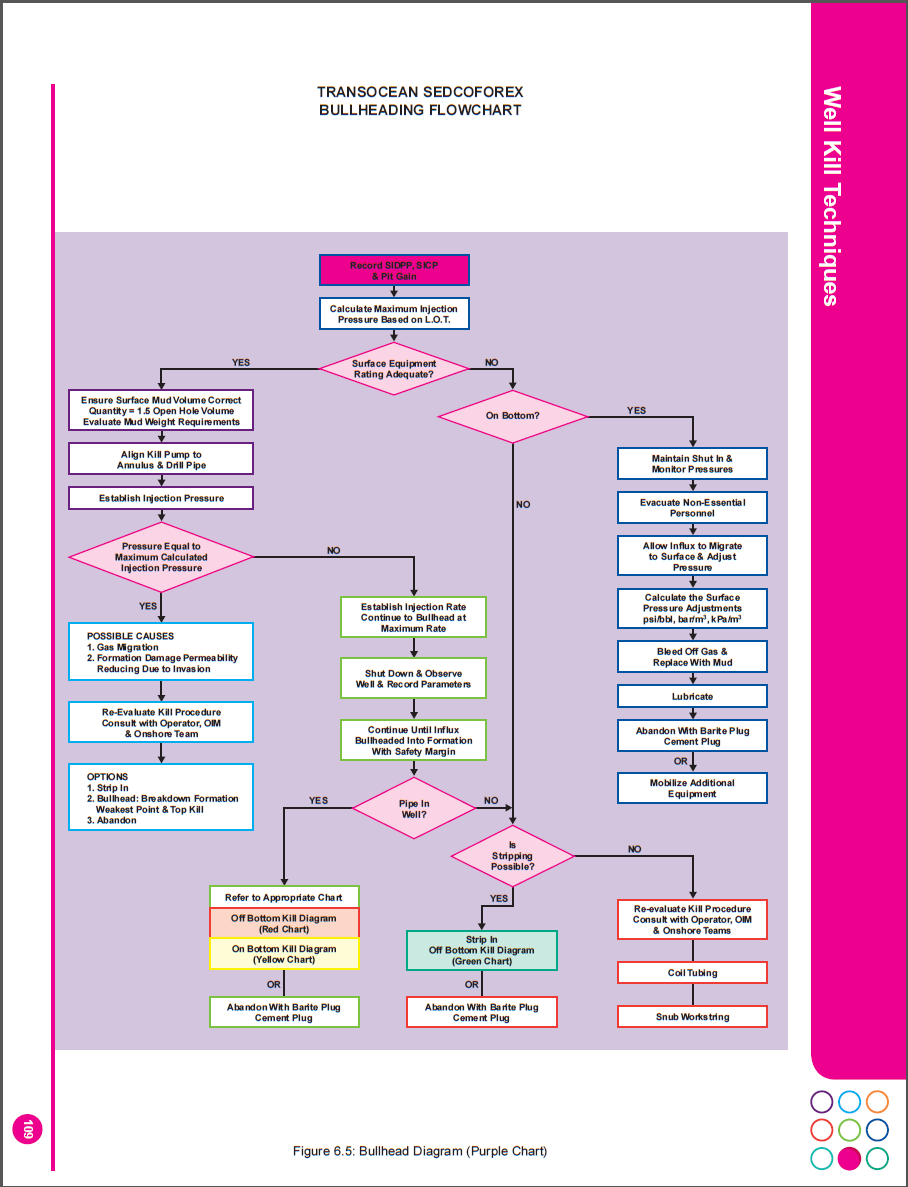Foreword
This manual
presents the well control policies and procedures of Transocean SedcoForex. It
has been developed with input from Operations, Engineering, Well Construction
and Training. This manual is to be kept on all rigs and in the Operations
offices and it is to be used as the reference for all well control operations.
It is the duty of all personnel involved in well control operations to read
this manual to familiarize themselves with the current company policies and
ensure that they are followed. This manual must be discussed and reviewed with
our customers both offshore and onshore in a timely manner. Any discrepancies
or misunderstandings must be clarified before drilling or completion operations
begin. Whilst every attempt has been made to capture best industry practices,
no manual is perfect and issues you disagree with should be challenged in an
appropriate manner. It is your responsibility to keep this a live and healthy
document. Well Control is an everyday issue, not just an exam to pass every two
years, so for the safety of all concerned please use this manual in your daily
business. Above all, THINK about kick prevention and the rest will never have
to be used.
Introduction
Transocean SedcoForex personnel
can forward recommendations for change to their Region Operations
Manager or Regional Training Centre. The proposal for change
will be forwarded to the Well Construction Manager who will be
responsible for obtaining appropriate approval and
preparing the final revision sheet. These revisions will, in turn, be
issued to the field.
IMPORTANT NOTICE
Throughout this manual,
measurements and formulae have been given in oilfield, metric and SI
units. This gives the flexibility for each operation to decide with the
client which units are to be used and the appropriate forms made available.
THIS DECISION MUST BE MADE AND CLEARLY COMMUNICATED TO
ALLCONCERNED PRIOR TO OPERATIONS COMMENCING.
Table of Contents
I . Policies
& Responsibilities1.1 Policies
1.2 Crew Responsibilities During Well Control Operations
1.3 Training Requirements 1.4 Exemption Process
II. Well Planning Considerations
2.1 Formation Pressure
2.2 Formation Strength
2.3 Well Planning
III. Well
Control Principles
3.1 Primary Well
Control 3.2 Secondary Well Control
3.3 Tertiary Well Control
IV. Preparation
& Prevention
4.1 Preparation of
Equipment and Materials 4.2 Well Control Drills
4.3 Pre-recorded Information
4.4 Kick Prevention During Operations
V. Actions
Upon Taking A Kick
5.1 Detecting A Kick 5.2 Containment As Early As Possible
5.3 Shut-in Procedures
5.4 Shut-in Period Prior to Well Kill
VI. Well
Kill Techniques
6.1 Wait and Weight
Method 6.2 Driller’s Method
6.3 Volumetric Method
6.4 Dynamic Volumetric Method
6.5 Stripping
6.6 Bullheading
6.7 Off-Bottom Kill
6.8 Removing Trapped Gas from the BOP
6.9 Decision Flow Charts
.....

Password: BlogKentQ
---BlogKentQ---


















0 nhận xét:
Post a Comment